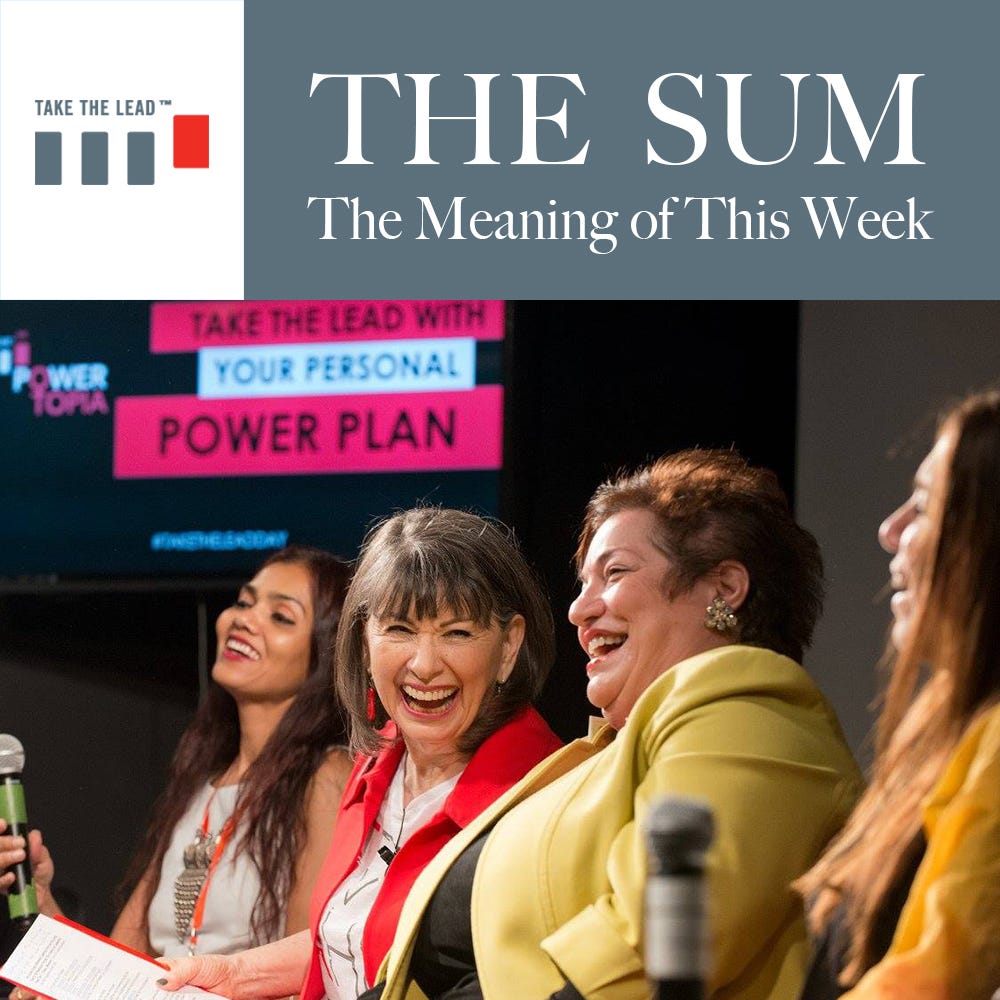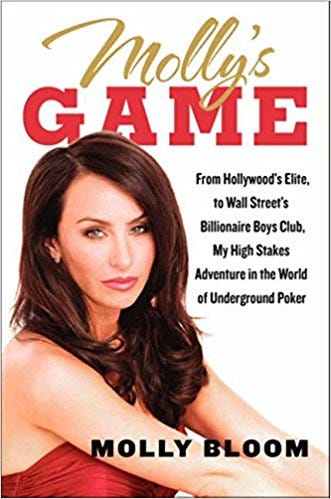The Sum — 3 Lessons (Not About Poker) From "Molly's Game"

Molly Bloom has been keeping me awake at night.
Not the Molly Bloom of James Joyce’s Ulysses, an equally outsized and out of the box character.
I’m talking about the hard-driving, elite high stakes poker game running protagonist of the acclaimed new movie, Molly’s Game based on a true story.
It could as easily have been called Molly’s Power Game.
Within Aaron Sorkin’s riveting direction, we get a finely drawn picture of how a girl pushed mercilessly by her philandering psychologist father to excel at competitive skiing survives major injury only to apply that same ruthless quest to running the Olympics of underground poker games. In both instances, she succeeds wildly at a man’s power game but ultimately is done in by it.
“In #MollysGame, Molly Bloom succeeds wildly at a man’s power game but ultimately is done in by it”

What kept me awake were the realer-than-life alpha male characters, one more scurrilous than the next. Whether around the poker table risking $100,000 stakes, urging her to dangerous speeds through the icy snow, or clapping handcuffs onto her in a righteous quest to clamp down on the traveling game, I felt I was seeing patriarchy in its most wretched incarnation: amoral, seeking power over others for the sheer thrill of it, almost feral in its wily dog-eat-dog approach to the world.
“#MollysGame shows patriarchy in its most wretched incarnation: amoral, seeking power over others for the sheer thrill of it, almost feral in its wily dog-eat-dog approach to the world”
Bloom (played by Jessica Chastain) appeared to be taking advantage of them, while in reality, the harder she tried to be the best at the man’s game, the more she lost herself.
Since my obsession is women’s relationship with power, that’s what made my stomach churn and gave me awake nightmares.
Not surprisingly, the one man who believed in her without trying to remake her was fictional. Her lawyer Charlie Jaffey, played by Idris Elba, was perhaps Sorkin’s alter ego trying to figure out Bloom’s complex character.
Why did she remain so committed to her personal ethics while running an inherently unethical business? Jaffey’s interrogatories created dialogue necessary to draw out the raw truth that she had become like a shadow puppet acting out her life in the dark, her moves determined by unseen powerful male hands while she only thought she was controlling them.
Elba himself observed how Molly’s story tracks the #metoo movement: “It’s quite poignant,” Elba told Den of Geek.com. “This is a film that was made a year ago, and probably prepped two or three years ago, but to come out when it’s coming out now is actually quite amazing, when we’re seeing women stand up and have a liberation movement of speaking up against some of [the] atrocities that [have] happened.”
So what can we learn from this true tale?
Know what your deepest, most authentic values are. Among my 9 Leadership Power Tools, number 6 is “Wear the shirt” of your convictions. I should have made it #1. It’s that important. Molly did know that running a clean legal game and not compromising her ethics was all important to her. In the end, though she fell off her path for a time, being true to herself in that way not only saved her from a prison sentence but also has enabled her to pick herself up and go forward into new business endeavors afterward.

2. Be aware of the cultural and media forces that are influencing you. As Chastain observed about the character she played, “I judged her. The media tried to convince me who Molly was and I fell for it hook, line and sinker. And then I met her and I was really surprised. She’s not this stereotype. There was a lot more going on. She’s a creation of society. Society values women for their sexual desirability, and she changed everything about herself to try to become successful in an industry dominated by rich and powerful men.”
3. Play your own authentic game, not someone else’s. Pick and choose intentionally how you want to be defined, what your purpose and your “why” are, and how you want to show up. Bloom had to fall hard to come to terms with this. “I think that I just had this realization that no matter how much money I had, or what car I drove, or how accomplished I was — there was always this existential loneliness,” she told the Los Angeles Times. “Do I want to be successful and ambitious? One hundred percent. That’s just who I am. But this time I want it to have meaning.”
We can, each of us, play a new game of our own making if we consciously embrace our #powerTO do so. It might be the hardest thing we’ve ever done but it will be the most rewarding.
About the Author
Gloria Feldt,Co-Founder and President of Take The Lead, is the author of No Excuses: 9 Ways Women Can Change How We Think About Power. She teaches "Women, Power, and Leadership" at Arizona State University and was named to Vanity Fair's Top 200 women Legends, Leaders, and Trailblazers.
